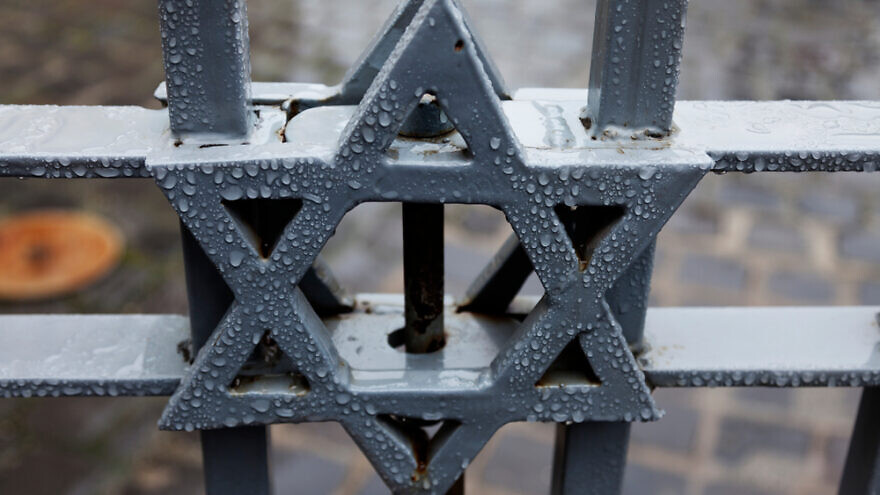Following the Jan. 15 hostage situation at a Texas synagogue, Jewish organizations in the United States have reignited their push for Congress to double the funding of the Nonprofit Security Grant Program (NSGP), ensuring that more targeted nonprofit institutions such as synagogues get federal funding to invest in protection.
While none of the hostages, including Rabbi Charlie Cytron-Walker of Beth Israel Synagogue in Colleyville, Texas, was hurt in the ordeal, organizations such as the Jewish Federations of North America and the Orthodox Union are pointing to increasing threats to Jewish institutions to justify an increase in the NSGP from $180 million annually to $360 million.
Elana Broitman, JFNA senior vice president, said the request was not new, as the Jewish community has been calling for $360 million in funding for a number of years. While still not funded at the ideal level, support had been growing—doubling last year to $180 million.
That number was still only enough to cover 45% of funding requests made by nonprofit organizations last year, of which approximately $220 million worth of requests were not granted because of insufficient cash, said Broitman.
But as Congress works to pass an omnibus spending package before the latest Continuing Resolution (CR) funding the government expires in February, the organizations see this as a perfect opportunity to increase the NSGP grant budget.
After the Texas hostage situation, the urgency has increased, she said—not just in the Jewish world but for other targeted communal facilities that can also access the grant funding.
“I mean, the anti-Semitic trend is horrendous, and there are law-enforcement reports that really show that it is the worst among religiously motivated hate activities. That said, we’re the canary in the coal mine,” said Broitman. “This fund goes beyond Jewish communities, and I think everybody recognizes how important it is.”
The NSGP grants go towards security measures in nonprofit organizations, including religious centers, museums and houses of worship. These measures include the installation of security cameras, secure doors, barriers and active-shooter training drills.
Cytron-Walker said that the training he was provided helped him act against the hostage-taker.
Additional security measures through this and other programs also helped avert further loss of life at the Tree of Life Synagogue*Or L’Simcha shooting and other attacks on synagogues.
“When something happens in one place—regardless of what details were in the particular attack—the security risk in other places of course rises because we always worry about copycat attacks. and every incident is a little bit different,” said Broitman. “And so the more we can protect institutions, the higher the bar for breaching those institutions.”
“We’re rallying the community because we just have to protect our vulnerable institutions,” she said.
‘Definitely more in ballpark of where demand level is’
According to Nathan Diament, executive director of the OU Advocacy Center, the $360 million figure was proposed by Senate Majority Leader Chuck Schumer (D-N.Y.) himself a few years ago.
Diament said the omnibus spending package will be the obvious place to include the amount, as congressional leaders and heads of the appropriation committees have started meeting to negotiate the omnibus to cover the remainder of the fiscal year.
The $360 million, he said, will be “definitely more in the ballpark of where the demand level is.”
Diament had just concluded a Zoom meeting on Tuesday organized by the Orthodox Union with more than 1,000 synagogue representatives from across the nation, in addition to department officials such as U.S. Attorney General Merrick Garland, U.S. Department of Homeland Security Secretary Alejandro Majorkas, FBI director Christopher Wray and FBI deputy director Paul Abbate.
Besides messages of solidarity from the administration officials, the synagogue representatives were promised that the agencies would do whatever they could to bolster the community’s security as well as go through practical steps that synagogues could take in the coming weeks.
NSGP funding and other security resources provided by Homeland Security and the FBI were also part of the discussion, according to Diament, as well as practical steps for the synagogue representatives.
“For example, the FBI director said to the synagogue leaders, ‘If you or your synagogue leadership doesn’t currently have an open line of communication to your local FBI field office, you should pick up the phone and start that now because that’s an important relationship to have,’ ” he said.
Diament added that another security measure the OU has been advocating for years was for the federal government through the U.S. Department of Justice and other grant programs to provide more resources to local police specifically to increase patrols and presence around synagogues and other houses of worship.
“If we’re in an environment in which houses of worship are targets, we need a more regular—at least, hopefully, only on a short-term basis—but we need a more regular police presence at houses of worship,” he said.
Eric Fusfield, director of legislative affairs for B’nai B’rith International, said his organization has long supported the increase.
“One result of Colleyville is the growing awareness that such attacks can occur anywhere, at any time, from multiple sources,” he said. “Also, the FBI’s hate-crimes data affirm that the Jewish community is by far the most vulnerable among religious groups.”


























